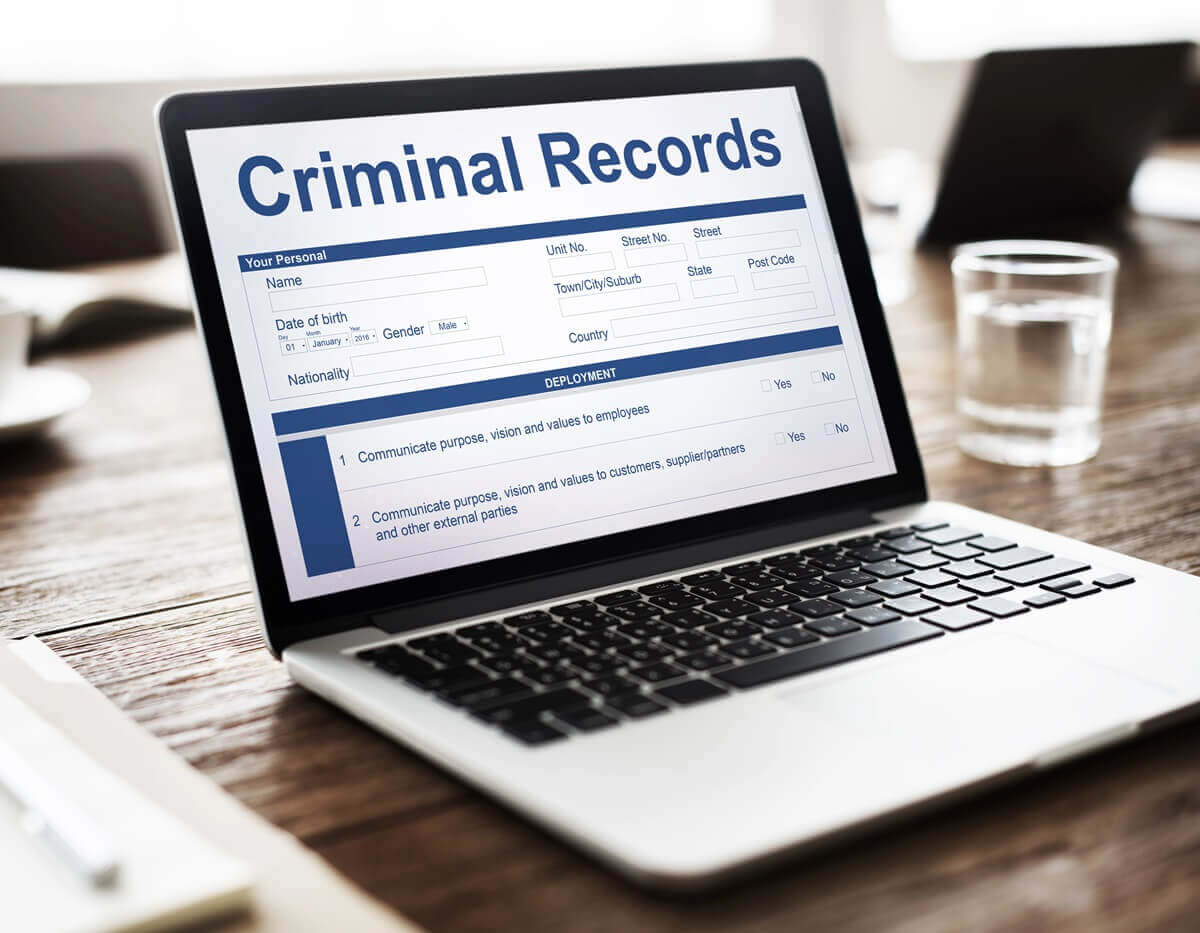Have you been arrested or convicted of a crime in the past? An expunge lawyer in Dallas can help you clear your record and start anew. Feeling concerned about your previous mistakes appearing on background checks and limiting your opportunities is understandable. The possible effects are severe, so seeking proper legal assistance is natural.
If you’re looking for a fresh start, expungement could remove past convictions from your record and open doors to new opportunities. An experienced attorney can guide you through the process and help you clear your criminal record. They can help you enjoy the life-changing benefits of a successful petition.


An Expungement Attorney Helps You Understand The Process
Expungement, or expunction, is the legal process of erasing certain criminal records to make them inaccessible through state or federal databases. This means the public won’t see the arrest or conviction on a background check. You can achieve this by filing a petition with the court where your original case was heard.
An expunge attorney will assess your situation to determine the necessary action. They prioritize reviewing your criminal history and clearly describing the expungement process. This is crucial in setting realistic expectations and understanding the steps in filing the petition.
Furthermore, a legal counsel can clarify the eligibility criteria and the types of offenses that can qualify for expungement. This guidance ensures you are well-prepared and informed before proceeding.
Factors To Consider To Expunge Records
Understanding expungement criteria is vital because not all individuals are eligible, whether they were arrested but not convicted or had their charges dismissed. In Dallas, the Texas Code of Criminal Procedure governs the eligibility for the process and considers several factors.
Tried & Acquitted
You are generally eligible for expungement if you were tried for an offense and subsequently acquitted. This applies if a judge or jury found you not guilty or if the court dismissed the case after the trial began. Since no conviction exists, there is no justification for the legal system to keep your record.
Convicted But Later Pardoned
If convicted, you may qualify for expungement but later receive a pardon or relief based on innocence. The pardon or court order must explicitly state that it was granted due to your innocence. This confirms that you have been forgiven and cleared of any offense-related wrongdoing.
Sufficient Time Passed Without Formal Charges
Texas law requires you to wait a certain period before applying for expungement if no formal charges were filed after your arrest. You must wait 180 days for Class C misdemeanors from the arrest date. Meanwhile, the waiting period extends to at least one year for Class B or A misdemeanors.
For felony crimes, you must wait at least three years. Alternatively, if a felony charge arose from the same incident, you may seek expungement sooner. You may do so if the state attorney certifies that the records are unnecessary for ongoing investigations.
Charges Dismissed Or Mistaken
You may be eligible for expungement if your charges were later dismissed or based on mistaken identity. Texas law recognizes that individuals should not suffer the consequences of erroneous arrests or unfounded accusations.
Statute Of Limitations Expired
If the statute of limitations for a crime has expired, you may be eligible for expungement. Texas law sets time limits for prosecuting criminal offenses, and once these limits pass, the charges can no longer be pursued.
These considerations provide a general overview of the qualifications, and specific details can vary depending on your case. Consulting with expungement lawyers is crucial to determine your exact eligibility. Once your qualifications are established, they can guide you in the comprehensive petition process.
The Step-By-Step Process
Undergoing expungement is complex, as the process can vary according to your case. However, following the standard steps can help you successfully clear your record. Upon determining your eligibility, your lawyer will guide you on the following steps:
Step 1: Prepare The Petition
You must prepare and submit a Petition for Expunction. The document must include personal identifying information, details about the offense, and the date of the arrest. It must also include the arresting agency’s name and a list of all organizations that might hold arrest records.
If charges were filed, the petition must also bear the case number, the court’s name, the charge’s resolution, and the date it was resolved. The petition must be notarized to verify its authenticity. Additionally, it should contain a blank “notice of hearing” to enable the court to set a hearing date.
Step 2: Submit The Petition
Once the petition is ready, you must file it to the appropriate court. The correct court depends on the level of the offense. For charged offenses, the petition is typically filed in the same court where the case was initially heard.
After filing, the court schedules a hearing and notifies all relevant agencies, referred to as respondents. These agencies then have the opportunity to contest the expunction at the hearing.
Step 3: Attend Court Hearing
At the hearing, the court reviews the petition and listens to any objections from the respondents. If you meet all requirements, the court will grant the expungement. This decision will be based on the evidence and arguments presented to ensure that all legal criteria for expungement are satisfied.
Step 4: Obtain Order For Expunction
Following the court’s approval, you must present an Order for Expunction to the judge for signature. It’s advisable to prepare this order in advance for the judge to sign at the hearing. Once signed, the order must be distributed to all agencies or organizations that hold records related to the expunged offense.
Step 5: Ensure Implementation
The final step involves ensuring that the records are deleted or returned to the court clerk as specified in the Order for Expunction. The agencies and organizations must comply with the court’s order to remove the expunged offense from their records.
The timeframe for receiving the official expungement order can vary. It typically takes a few weeks to a few months for the order to be processed and distributed. You may follow up with all notified agencies to ensure they have complied with the order.
The expungement process requires patience and attention to detail, but the result can significantly impact your future. An expunge attorney can guide you through the intricacies of the petition and ensure everything is in order. Even with an unfavorable decision, their knowledge can redirect you to other legal options.
Expungement Lawyer Highlights The Benefits Of Expunction
A criminal record can hold you back from many beneficial opportunities, but expunction allows you to move past mistakes behind and pursue a brighter future. Here are the key advantages of expungement:
Improved Employment Opportunities
A clean record can open up more job opportunities for you. Since many employers conduct background checks, having a criminal record may not qualify you for certain positions. Expungement can help level the playing field and increase your chances of securing employment.
Enhanced Housing Prospects
Expunging your criminal record can enhance your chances of securing suitable housing. Property management companies and landlords frequently assess potential tenants’s backgrounds, and a criminal record can lead to application rejection. A clean record makes you more likely to be approved for rental housing or leases.
Better Access To Education
Colleges and universities may conduct background checks on applicants. A criminal record could impact your enrollment or eligibility for specific programs. Expungement can help remove this barrier and facilitate access to educational opportunities.
Increased Chances To Professional Licensing
Certain professions require applicants to pass background checks and maintain a clean record to obtain licensure. Expunction can make you eligible to obtain or renew professional licenses to help you pursue careers previously off-limits due to past convictions.
Personal Well-Being & Social Benefits


Beyond the practical benefits, expungement can also provide a sense of closure and relief. It can reduce a criminal record’s social stigma and stress, letting you move forward more confidently.
If you want to experience these benefits, working with an experienced attorney is a great way to do it. They can assess your situation, advise you on the most suitable course of action, and represent you throughout the legal process.
The Medlin Law Firm Can Help Clear Your Name
At The Medlin Law Firm, we understand how a criminal record can significantly affect your future opportunities. Our skilled lawyers are dedicated to helping clients clear their names through expungement or other legal remedies. As we firmly commit to personalized service, we guide you through every step of the process.
Our law firm offers a thorough initial consultation to determine your eligibility and explain your options. From gathering documents to representing you in court, we ensure that every aspect of your case is handled professionally. We aim to provide you with a fresh start, free from the shadow of past mistakes.
Summary
Clearing your criminal record through expungement can open doors to new opportunities and a brighter future. An expungement lawyer helps you navigate the process and understand the factors affecting eligibility. This requires going through elaborate steps, but the life-changing benefits outweigh the stress of the process.
The Medlin Law Firm is ready to assist you if you want to clear your name and achieve improved well-being and opportunities. We provide skillful guidance and comprehensive support for individuals seeking expunction in Dallas, Texas.
Similar Posts by The Author:
Publicaciones Similares del Autor:
(682) 204-4066 We cannot receive pictures via text so please send those via email or hand deliver to our office.





